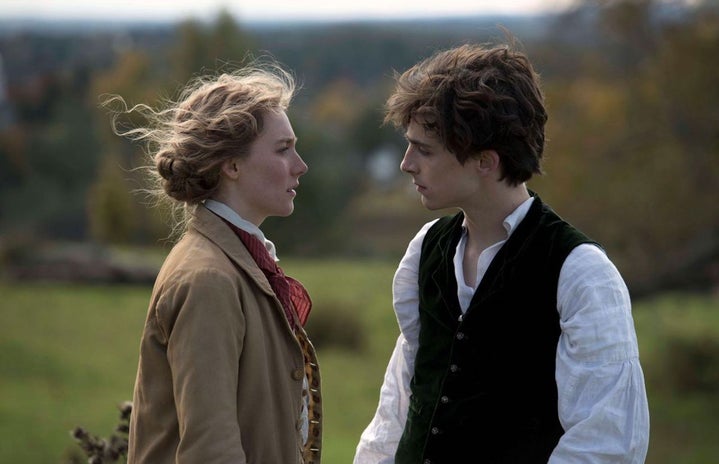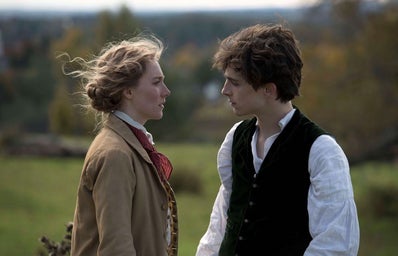In the 2019 adaptation of Louisa May Alcott’s Little Women, directed by Greta Gerwig, the audience saw a new side to Amy March — the youngest and most misunderstood of the sisters — as portrayed by Florence Pugh. This version depicted Amy as a pragmatic and reasonable young woman who realized that to get what she wanted out of life she would have to play within the system of society to achieve this. Without further ado, this is my argument in dense of Amy March…
previous depictions
The five previous books-to-movie adaptions used Amy as a mouthpiece for a childish and vain foil to Jo’s tomboyish and wild nature. Similarly to how Amy is written in the book, the movies did not allow her to grow and mature along with the timeline of the story. Amy’s character has some notable storylines throughout the book with most being in direct contrast to what Jo wants; burning the manuscript, traveling to Europe with Aunt March, and ending up with Laurie. The last point is debatable based on your interpretation of the ending but regardless Amy is seen as getting everything she and Jo both want instead of Jo who “deserves it.”
2019 Portrayal
Gerwig’s film took this narrative and flipped it on its head, showing that Amy settles for the life she lives because she is the most realistic of the four sisters. When the story begins, the March family is poor and uncomfortable with this predicament, so Aunt March tells Meg to marry rich, (which she doesn’t). Then she tells Jo to marry rich, (which she doesn’t), and Beth passes away young, so then the expectation falls to Amy to get her family out of poverty. Young Amy says in the beginning of the movie when everyone is discussing their Christmas wishes that she “has lots of wishes, but my favorite one is to be an artist and go to Paris and do fine pictures and be the best painter in the world.”
Amy does marry rich when she marries Laurie in all of the adaptations but in Gerwig’s version, she has a very different approach to it. When Laurie asks her not to marry Fredvaughn — the man she is dating in Europe — she says that she has to secure her family’s wellbeing. She notes while Jo is a successful writer, she is a failure in her painting career. While Laurie remarks that this is a big statement to make at 20 years old, Amy decisively says that she always knew she would marry rich and she’s not ashamed of that. This is when Amy March of the 2019 adaption steers away from her previous renderings. Amy grows up and she knows what is possible to achieve as a woman as well as what is needed for her family.
Meg marries for love instead of money, Jo forgoes marriage to chase her dream of being a writer, and Beth says early on that she doesn’t have big dreams like the other three, she instead just wants everyone to be together. Amy is the one who sacrifices her greatest wish to provide for her family and this is often overlooked due to her getting to marry for love and money. She was prepared to marry Fredvaughn for money to help her family and she had decided that she would “become an ornament to society” before marrying Laurie. In the most recent version, Gerwig gives Amy room to blossom as she shows that Amy doesn’t just drop everything to marry Laurie but instead tells him off for being lazy, challenges him, confronts him about being second to Jo her whole life, and refuses to accept his proposal until he grows up.
conclusion
At the start of the story while all the girls are in the attic discussing their futures, Jo remarks that she wants everyone to stay young and together forever, Meg says she doesn’t know what she wants, and Beth adds that she doesn’t have big dreams for the future when she’s so young. Amy says, “We’re all going to grow up someday, we might as well know what we want.” In retrospect, Amy is the March sister we should all want to be. She knows what she wants and how to get it; she’s logical and determined, as well as realistic. Everyone wants to be the wild and talented Jo, but most of the time it is better to be Amy.


